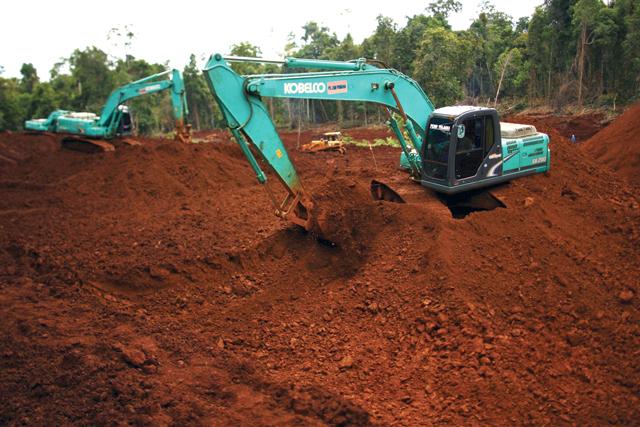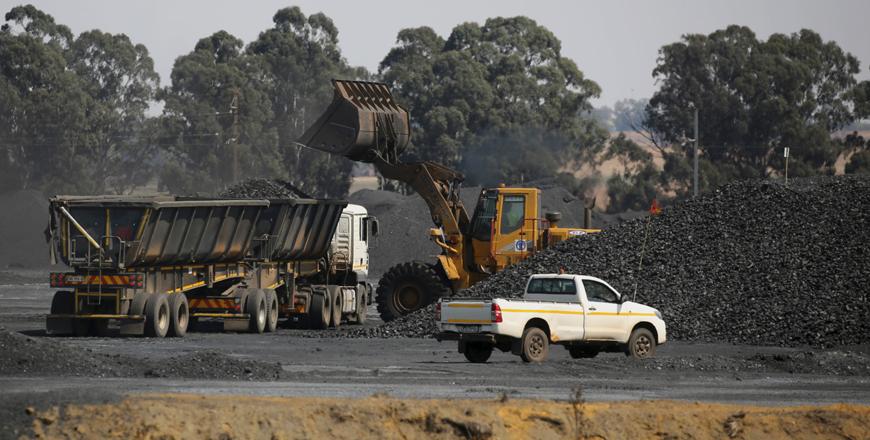You are here
Africa’s push to add value to minerals now a riskier gamble
Mar 30,2014 - Last updated at Mar 30,2014
LONDON — African government efforts to force mining companies to process minerals before export may backfire as they come up against weakening commodity prices and investor demands that firms reduce risky investments.
In the last year alone, Zimbabwe, Zambia, Democratic Republic of Congo (DRC), Namibia, South Africa and others have hinted at, announced or put in place measures aimed at adding value to minerals exports, which would boost tax revenue, encourage formation of new businesses and add jobs.
But with falling metal prices and a drastic reduction in the capital available for the mining industry, wary companies are increasingly shying away from investment in countries where the rules of the game can change quickly.
“Investment sentiment in the last year has moved against the mining sector, but the governments tend to have a lagging view of how this is going to affect investment in their countries,” said Mike Elliott, global mining and metals leader at Ernst & Young.
“They continue to argue that mining needs to make a bigger contribution to their economies, but you’ll have to see investment severely tail off to make them think they need to attract investment rather than scare it away,” he added.
According to consultants, governments could find more targeted and effective ways of adding value to local economies.
For example, they could push local companies that provide services for the mining industry such as logistics, security, catering and construction to become more competitive and then tighten regulation around the procurement of such services, consultant Tom Wilson at Africa Practice suggested.
“Ultimately you can’t turn market forces on their head. You have to figure out where the country has the capacity to fill the need for goods and services and provide some structures that actually help indigenise some businesses,” Wilson said.
The top five mining companies are slashing total capital spending from a peak of about $70 billion in 2012 to an expected $46 billion in 2015, according to Reuters I/B/E/S.
Mining firms have been taking costly writedowns following years of risky bets to pursue growth, and they now need to prove to shareholders they can use their cash more wisely.
“Companies need to decide whether they wish to continue mining in these countries and face what the governments want to do in terms of beneficiation or pull out. And in some cases it will be a pull-out strategy,” said Kevin Goodrem, vice president of beneficiation for De Beers Group.
The hard line
Zimbabwe, which holds the world’s second-largest platinum reserves after South Africa, has taken a hard line. President Robert Mugabe late last year threatened to stop exports of raw platinum in a bid to force mining firms to process the metal domestically.
The government said last month it had short-listed two companies to build a refinery by 2016, but industry players expect the project will take much longer than two years.
A source at a mining company operating in southern Africa said the volumes mined in Zimbabwe are not enough to make construction of a $2-$3 billion refinery economically viable, and he was sceptical that the energy supply would be sufficient to run it.
But companies operating in Zimbabwe, which include top world platinum producers Anglo American Platinum and Impala Platinum Holdings, have to remain engaged with the government to avoid losing assets.
“For the platinum miners who operate in Zimbabwe, it is a very concerning time. And it is a bit of a tragedy for Zimbabwe, because they are a very significant producer, but no global capital is going to go there today with that policy uncertainty,” Elliott said.
The DRC and Zambia, Africa’s largest copper producers, are also trying to boost downstream investment.
Kinshasa is trying to implement a ban on exports of copper and cobalt concentrates but has so far encountered the resistance of the powerful governor of Congo’s copper-producing Katanga province.
Many in the industry say the ban is unrealistic as acute electricity shortages hamper processing activities in Congo.
In Zambia, President Michael Sata in October revoked a law that had suspended a 10 per cent duty on exports of unprocessed minerals including copper, iron, cobalt and nickel.
Miners say that although some plants are being built, Zambia does not have enough smelting capacity to process all its copper, so they are accumulating high stocks of concentrate.
“Some of these countries are trying to run before they can walk,” remarked Deutsche Bank analyst Robert Clifford.
“I understand why they want to do it, but they have to provide some assurance to companies that they are not going to pull the rug out from under their feet and change the rules once they have spent billions of dollars,” he said.
Also new smelters and plants may not make sense if their products are expensive and uncompetitive in global markets.
Mining experts say governments should avoid blanket policies and instead target parts of the industry that will actually benefit from downstream investment.
They cite Indonesia’s controversial ban on exports of unprocessed mineral exports as an example.
The ban is expected to boost downstream processing investment in the next few years in nickel, where the country is competitive. But in copper, it is expected to achieve little besides souring the relationship between the government and producers.
Wary of the risks, Namibia seems to have taken a softer approach so far. The government has commissioned a study to identify the commodities it would be more beneficial to process.
“You have to be careful with value-addition policy, because the risk is that it could be value disruptive,” said Magnus Ericsson, founder of the Raw Materials Group, a consultancy that advices governments and companies on mining issues.
“One policy doesn’t fit all. That’s a recipe for disaster,” he added.
Related Articles
Indonesia, among the world’s biggest suppliers of natural resources, halted all mineral ore exports on Sunday to try to promote domestic processing, but threatening the country’s nickel and bauxite industries worth more than $2 billion in annual shipments.
BEIJING — Chinese leader Xi Jinping on Thursday pledged over $50 billion in financing for Africa over the next three years, promising to dee
JOHANNESBURG — A slump in commodity prices and flight by global investors from risky “frontier” markets has hammered currencies and state bu


















